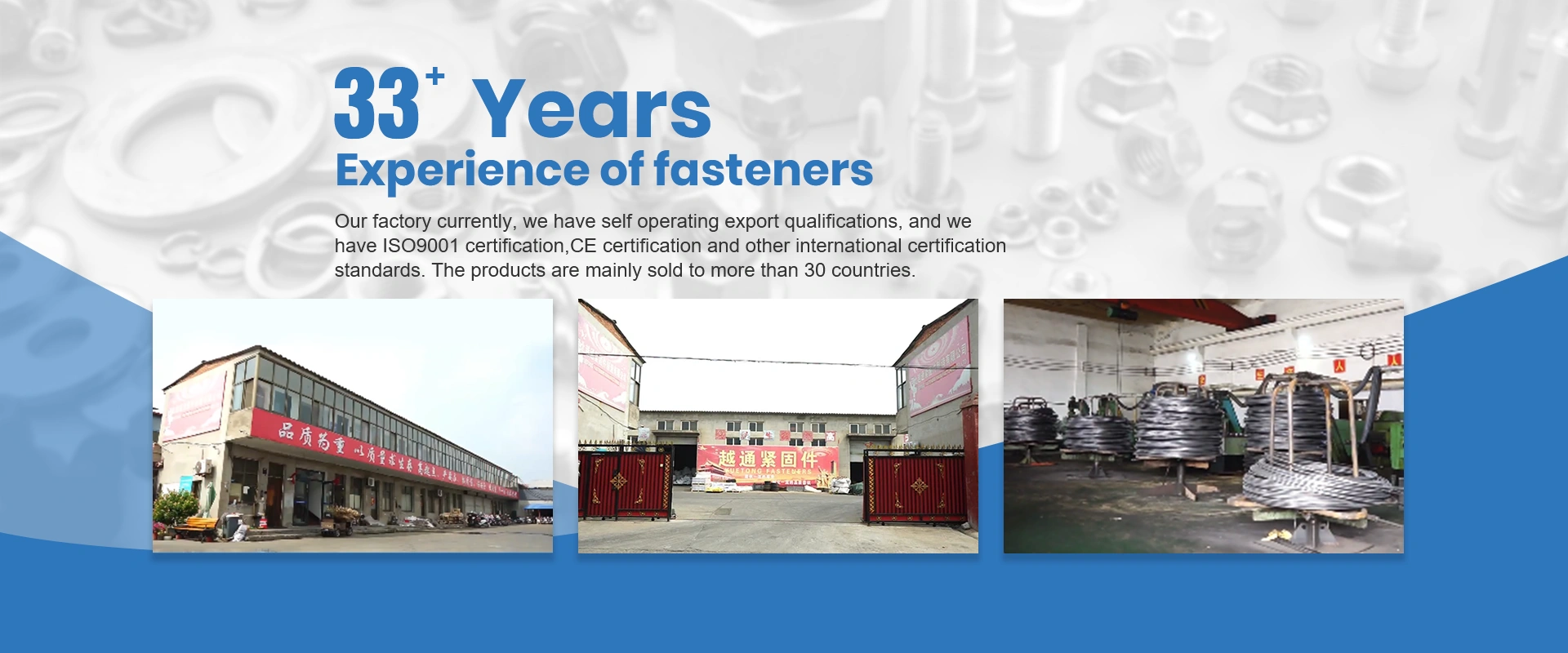Nov . 25, 2024 12:43 Back to list
m12 through bolts
Understanding M12 Through Bolts Specification, Usage, and Applications
Through bolts are a vital component in construction and engineering applications, providing exceptional strength and stability when fastening structures together. Among the various types of through bolts available, the M12 through bolt is widely recognized due to its standardized size and compatibility across numerous applications. In this article, we will delve into the specifications of M12 through bolts, their materials, installation processes, and common applications.
What is an M12 Through Bolt?
An M12 through bolt is a type of fastener characterized by its nominal diameter of 12 millimeters. The M designates that it is a metric bolt, meaning it is manufactured according to the metric system standards, and suitable for use in various countries. Through bolts are distinct because they pass through an object being fastened, anchoring themselves in a receiving structure—typically with a nut and washer on the opposite side to ensure a secure grip.
Specifications of M12 Through Bolts
When discussing the specifications of M12 through bolts, several key aspects must be considered
1. Dimensions M12 bolts have a diameter of 12 mm and are available in various lengths. The length must be chosen based on the thickness of the materials being fastened and the required grip length.
2. Thread Pitch The standard thread pitch for M12 bolts is 1.75 mm. However, finer threads (1.5 mm) are also available for specific applications requiring higher tension.
3. Material M12 through bolts can be manufactured from different materials including steel, stainless steel, and alloy steel, which is crucial for resisting corrosion and increasing tensile strength depending on where and how they are used.
4. Finish These bolts may come with various surface treatments, such as zinc plating or Cataphoretic Epoxy, to enhance their resistance to corrosion and extend their longevity in outdoor or industrial environments.
5. Load Capacity The load capacity of an M12 through bolt can vary based on its material and installation method, but it is generally designed to withstand significant loads, making it ideal for heavy-duty applications.
Installation of M12 Through Bolts
The installation of M12 through bolts is relatively straightforward, requiring the following steps
m12 through bolts

1. Preparation Begin by ensuring that the materials to be joined are aligned. Use tools such as clamps to hold them in place if necessary.
2. Drilling Drill a hole through both materials where the bolt will be inserted. The diameter of the hole should be slightly larger than the bolt's diameter to facilitate easy insertion.
3. Insertion Insert the M12 through bolt through the holes, making sure it fully passes through the second material.
4. Securing On the opposite side, place a washer and thread on the nut. Tighten the nut using a wrench, ensuring that the bolt is secured firmly while preventing overtightening, which can strip the threads or damage the materials.
5. Final Check After installation, conduct a final inspection to ensure that the bolt is seated well and that there is no excess movement between the joined materials.
Applications of M12 Through Bolts
The versatility of M12 through bolts makes them suitable for various applications, including
1. Construction Widely used in building frameworks, connecting beams, and anchoring structural elements.
2. Heavy Machinery Essential in securing components in industrial equipment where high tensile strength is needed to withstand vibrations and loads.
3. Furniture Utilized in assembling heavy-duty furniture where stability and strength are paramount.
4. Automotive Commonly found in vehicle assembly as they can endure high stress and environmental challenges.
In summary, M12 through bolts are essential fasteners in many fields due to their solid construction, durability, and ease of use. By understanding their specifications, installation processes, and applications, engineers and builders can ensure they choose the correct components for their projects, leading to safe and reliable constructions. Whether in residential, commercial, or industrial applications, the importance of M12 through bolts cannot be overstated.


